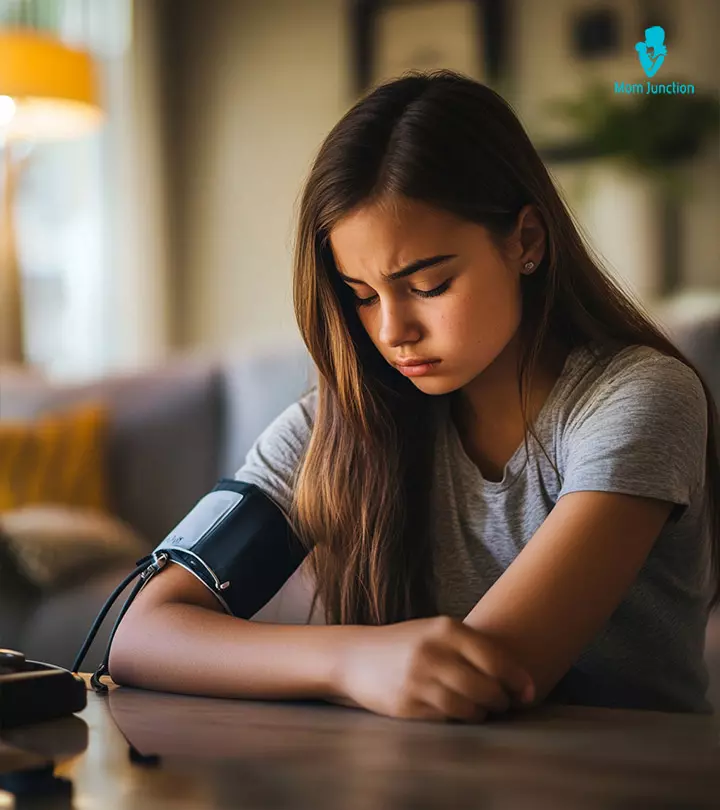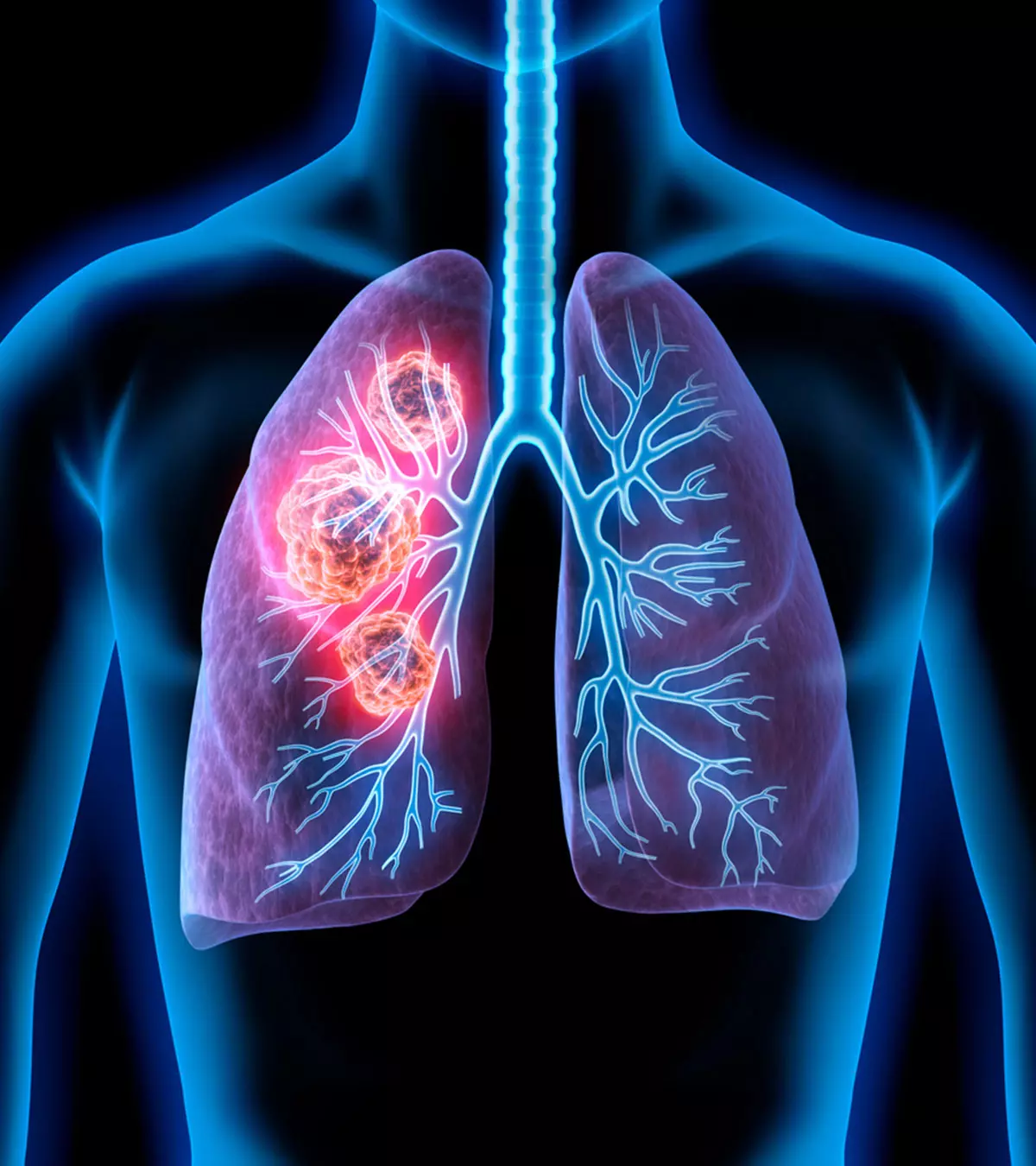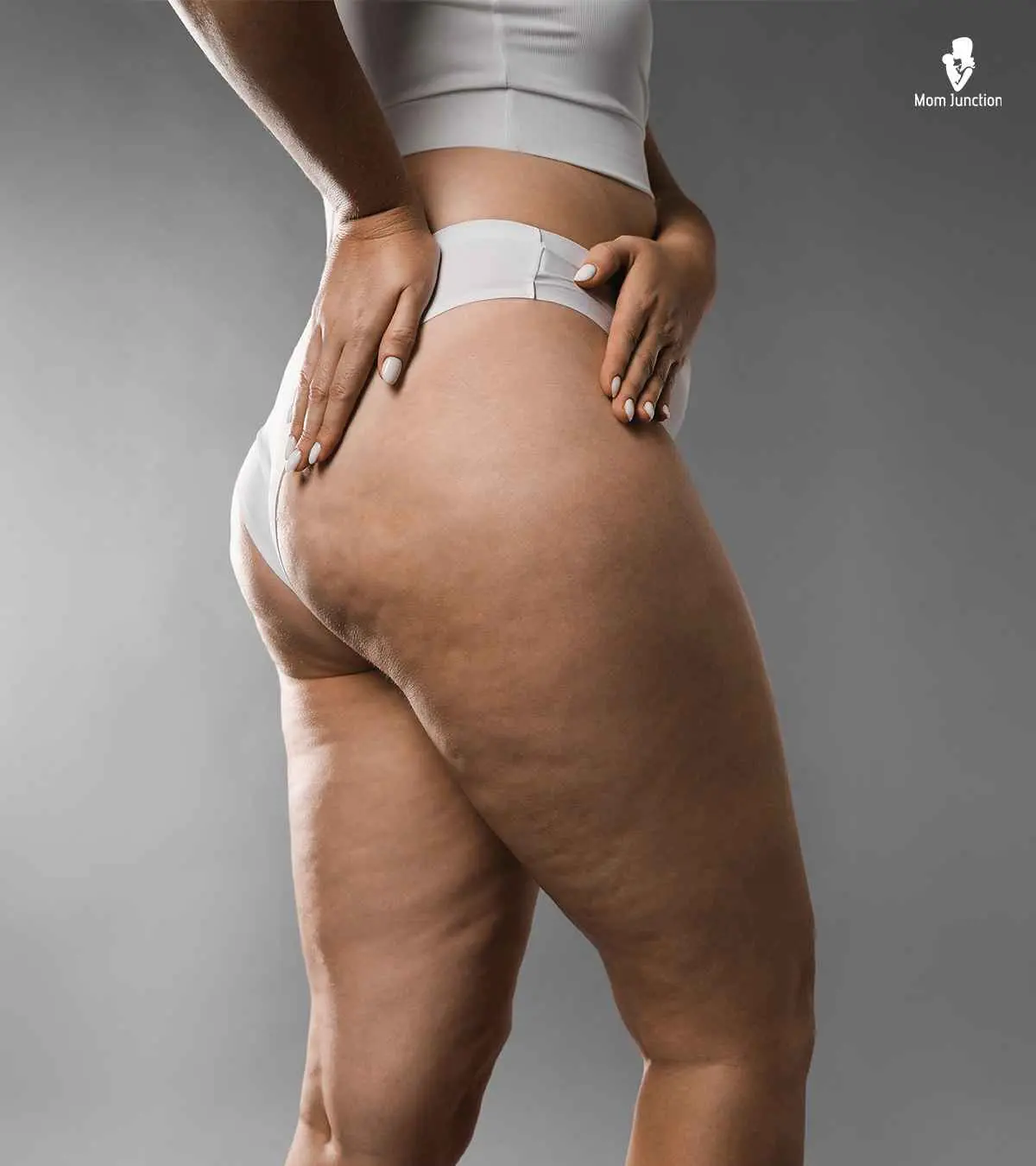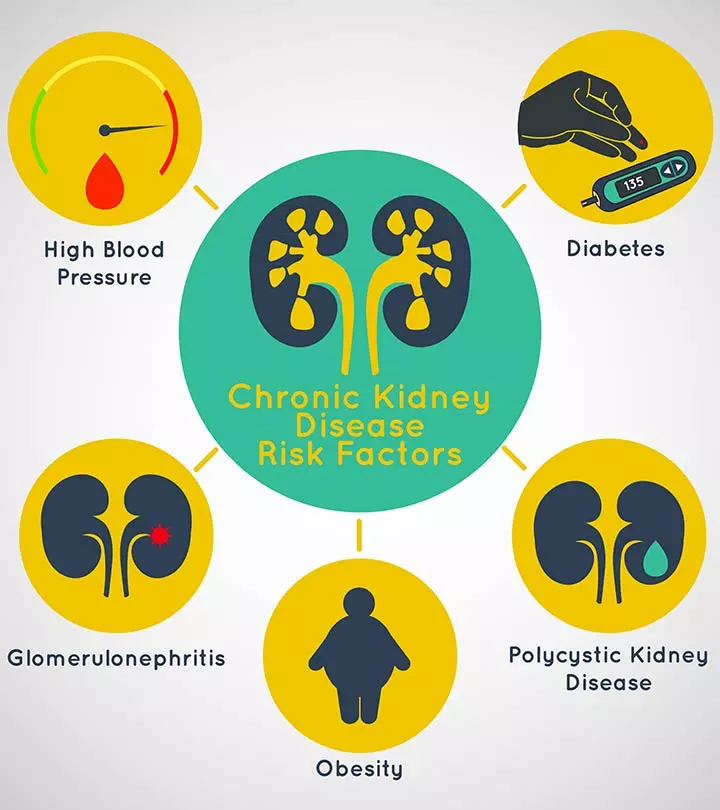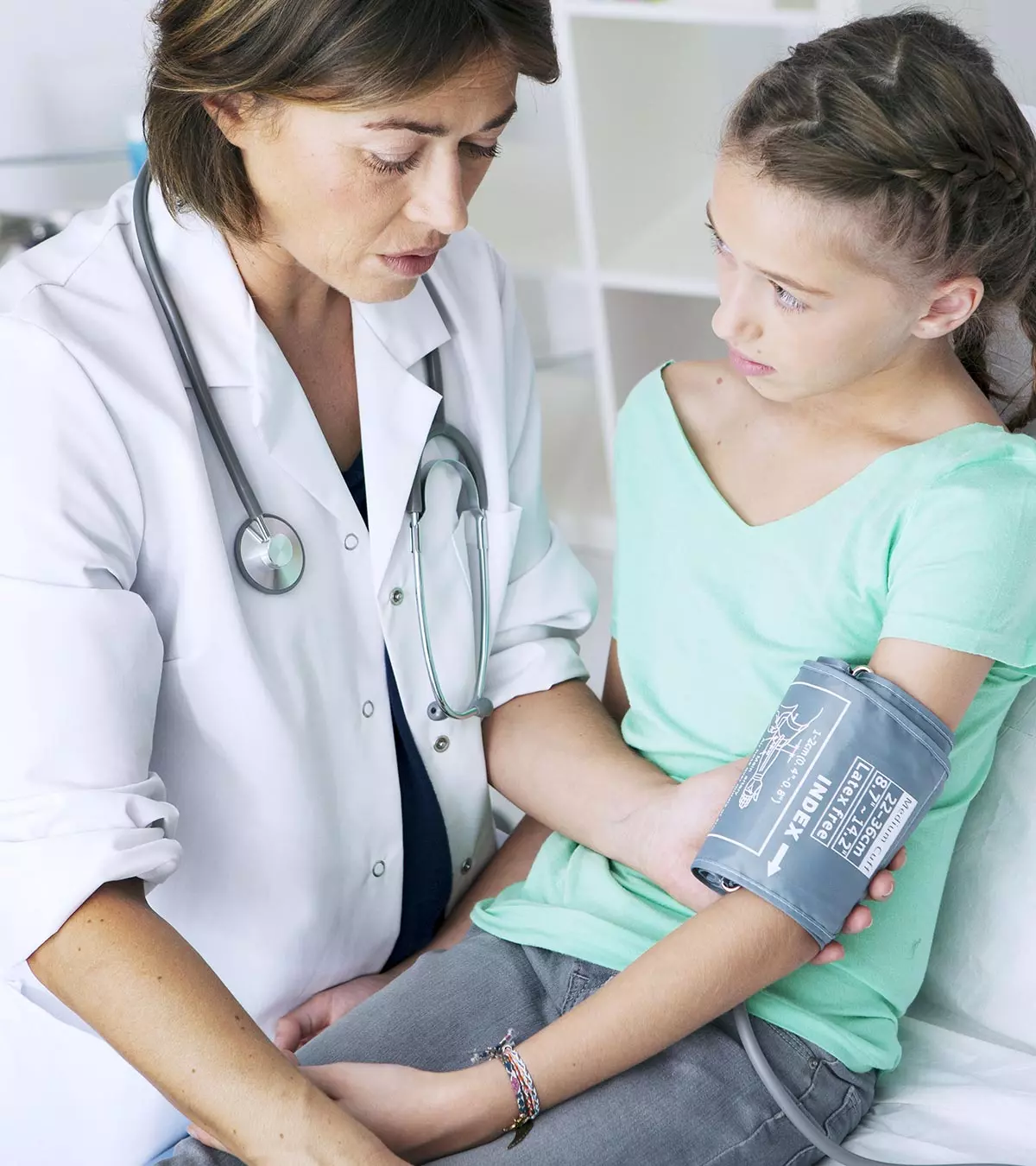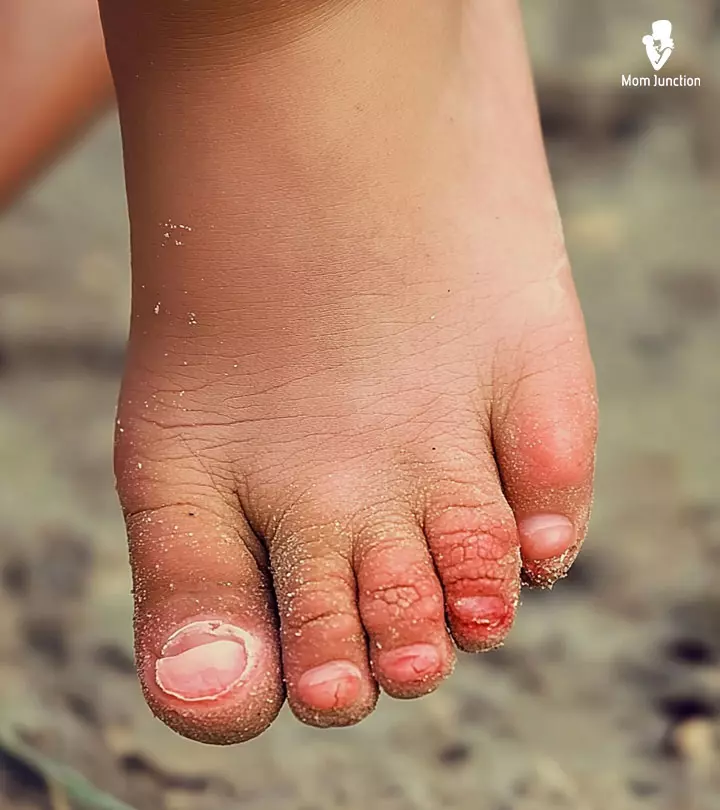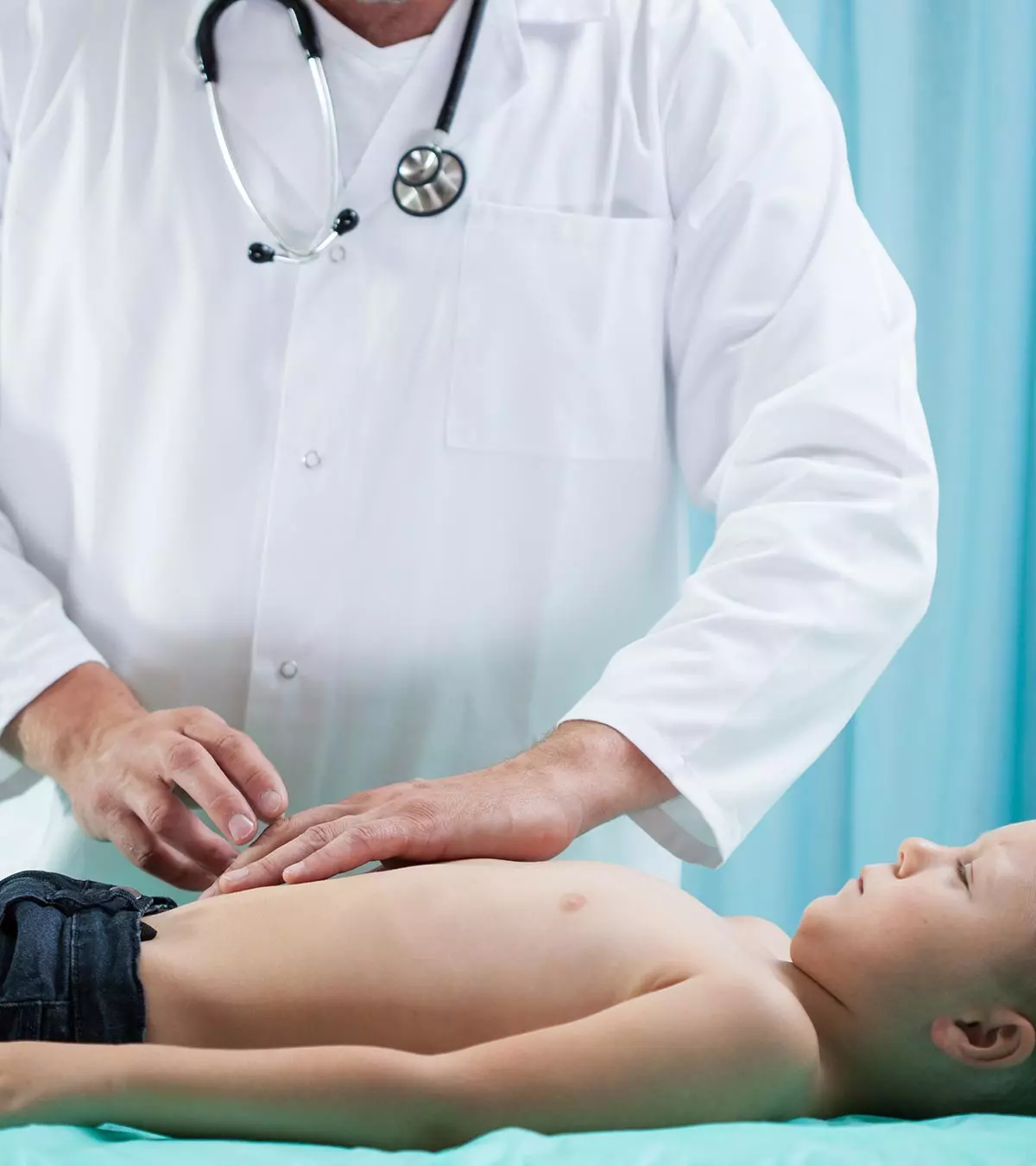
Image: iStock
“Do boys have periods?” is a common question for many teens in puberty when they know about menstruation. Boys will not get periods as they do not have ovaries and a uterus to ovulate. Periods are a part of women’s physiology and occur during the reproductive age. It is the shedding of the uterine lining due to hormonal changes in the body if the ovumiAn egg cell in the female body, which, when fertilized, can create a new organism. released from the ovaries is not fertilized. As the human anatomy reveals, boys have different organs in the reproductive system and thus they cannot get periods. Keep reading to know more about commonly confused terms such as male menstruation and more.
Key Pointers
- Boys do not have periods because they lack the reproductive organs (ovaries and uterus) needed to ovulate and menstruate.
- Teenage boys may experience mood swings due to the effects of testosterone.
- Irritable male syndrome (IMS), similar to PMS, is a condition that only affects adult males.
- Male menstruation is not a normal or healthy occurrence and can indicate several underlying health issues.
- Male menstruation is caused by various health problems such as Schistosomiasis, kidney infection, bladder or prostate tumors, and urinary tract infection.
Do Boys Get Their Period?

Image: Shutterstock
Boys, too, experience emotional and physical symptoms such as mood swings, fatigue, cramps, irritability, and cravings, which are common during periods. Such symptoms are referred to as ‘man periods’, which happen due to hormonal imbalances. However, men do not bleed like women do, as they do not have a uterus (1).
So, why do girls have periods and boys don’t?
Menstruation is the cyclic breakdown of the endometrium (inner lining of the uterus) along with the unfertilized ova or egg.
- Girls have a uterus and ovaries that produce eggs. They get their period to flush out the uterine lining.
- Boys do not have periods as they do not have a uterus and do not ovulate. It means there is no uterine lining or unfertilized eggs that need to be sent out of the body.
- However, just like girls, boys also go through puberty. While girls develop breasts and pubic hair, boys undergo changes such as changes in their voice and, the growth of hair in the private parts and on the face.
Period involves not only bleeding but also certain emotional stress, which boys too can experience.
 Trivia
TriviaIf Girls Have Periods What Do Boys Have?
Boys do not have periods but they could undergo psychological traits of menstruation such as mood swings.
Mood swings in adolescent boys

Image: Shutterstock
Before the onset of the menstrual cycle, girls go through a phase called premenstrual syndrome (PMS). It is a time when they go through an overwhelming rush of emotions such as lethargy and sadness (2) due to the release of female sex hormone estrogen.
Interestingly, male sex hormone testosteroneiAn androgen or male sex hormone produced by the testicles and instrumental in developing male traits. also causes some similar effects on the behavior of adolescent boys, such as clumsiness and moodiness (3).
There is a condition called irritable male syndrome (IMS), quite similar to PMS, but it is only associated with matured adult males that go through a cyclic drop in testosterone (4).
It is quite common to see ‘periods-like behavior’ in adolescent boys since the upheaval of emotions strikes a similarity with the mood swings seen in menstruating girls.
 Quick fact
Quick factMale Menstruation
Male menstruation is not a regular cycle and neither is it normal; therefore requires body awareness to identify issues and seek treatment. It can be an indication of a condition that requires immediate medical attention. Male menstruation refers to the bleeding from a boy’s genitals due to various health problems including:
- Schistosomiasis: This is usually the leading cause of urinary bleeding in boys. Schistosomiasis is caused by the parasite Schistosoma haematobium. One of the symptoms of the disease is traces of blood in urine and stool (5). It was so common in the ancient times that people in Egypt expected adolescent boys to go through a ‘male menarcheiThe onset of menstruation. ’.
The disease is spread through freshwater that contains schistosomes. The parasitic flatworms enter the human skin by boring a hole in it. Along with bleeding from the genitals, a person may show symptoms like blisters on skin, swollen abdomen and constant stomach ache.
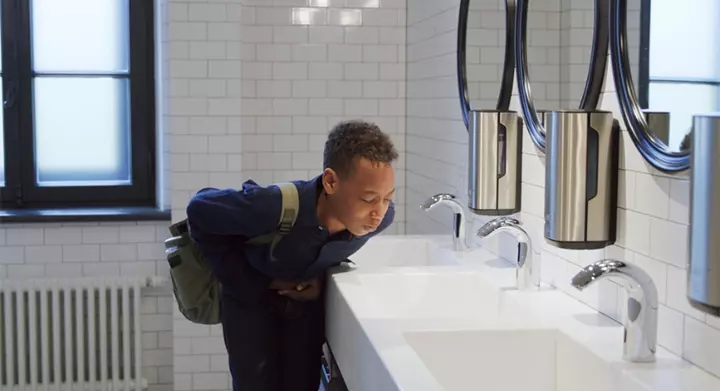
Image: Shutterstock
- Kidney infection: Numerous kidney ailments such as infections and stones could lead to blood in the urine (6). Kidney infections that can lead to a condition of male menstruation are commonly caused by bacteria. These infections interfere with the kidney’s ability to purify the blood and may cause them to leach blood out from the bloodstream into the ureter, which ultimately comes into the urinary bladder.
Kidney stones may also cause blood in the urine. This commonly occurs due to bruising of the nephronsiA part of the kidney that filters and clears waste from the blood. in the kidneys that may cause them to bleed.
- Tumor in bladder, kidney or prostate: A genitourinaryiRelated to genitals and excretory organs. tumor is quite likely to cause bleeding from genitals. The cancerous growth could occur either in the urinary bladder, kidney or on the ureters (7). Blood from the genitals and pain during urination are classic symptoms of the ailment. Cancerous growths can interfere with the normal functioning of the urogenitaliRelated to urinary and reproductive organs. organs causing them to leak blood in the urine. According to the American Cancer Society and National Cancer Institute, five to seven percent of the most common tumorous growths occur in the kidneys.
- Urinary tract infection: Urinary tract infections (UTIs) have similar causes as kidney infection. It usually occurs due to exposure of the urinary tract to bacteria, such as coli or Staphylococcus saprophyticus, of which the former is the most common cause. Boys are more prone to this infection until the age of one. After the age of two, it is far more common in girls. However, it is less common in males compared to females and is often sexually transmitted (8). Maintaining general hygiene and drinking plenty of water is the best way to prevent UTIs.
- Certain drugs: Some drugs may cause bleeding from the genitals as a side effect. Drugs that help in blood thinning or aspirin-type medications, penicillins, and sulfa-containing drugs can cause blood to seep from the blood vessels in the kidneys to the urine (9).
 Quick fact
Quick fact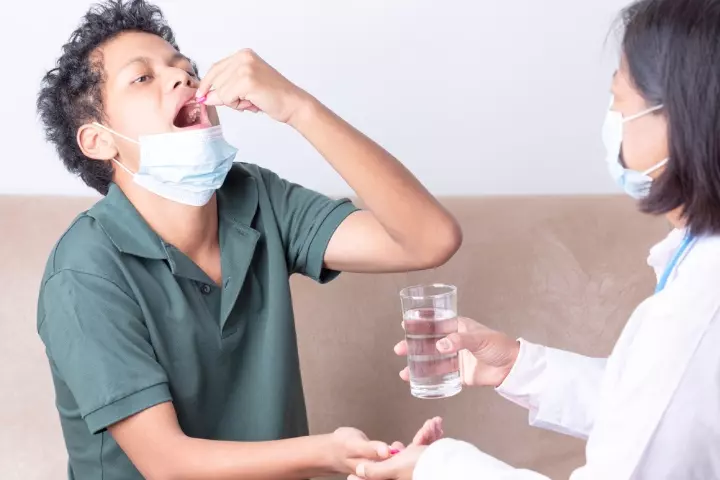
Image: Shutterstock
Transgender males may get their periods until they undergo hormone replacement treatments or hysterectomy (removal of the uterus). Trans-men may not get their periods if there are hormonal imbalances and need to seek medical care if they experience changes in the menstrual cycle.
So, the answer to “Do boys have periods?” is a clear no. Unlike the female reproductive system, boys do not have a uterus, and thus menstruation cannot occur. Therefore, it is biologically impossible for boys to have periods. However, boys may undergo mood swings or other emotional changes during puberty due to changing levels of the male sex hormone testosterone. These fluctuations may cause increased anxiety or stress, which can affect a child’s overall well-being. Have open discussions to help your boy feel safe and supported. Seek medical attention if he complains of blood leaking from his private parts, as it may indicate some severe underlying conditions, infections, or injury.
Frequently Asked Questions
1. How can I talk to my son about periods?
Begin by explaining the biological process of menstruation. Let your son know that periods are a normal and natural part of a girl or woman’s life and an essential bodily function, just like digestion or breathing. Answer questions honestly and encourage him to be empathetic and supportive towards women who may experience discomfort during periods.
2. Why do people think boys have periods?
The idea that boys have periods is not widely accepted or supported by scientific evidence. However, there has been some discussion around this topic due to a growing emphasis on inclusivity and recognition of gender diversity. This perspective is based on the belief that gender identity should not be solely determined by biological sex.
3. What should I do if a boy asks me if he can have a period?
Recognize that the person asking the question may be genuinely curious and trying to understand something they have no experience with. Help them understand that menstruation is a biological process typically occurring in people with a uterus. Encourage them to ask more questions and assure them it’s normal to be curious about topics related to the human body and health.
Infographic: Possible Reasons For Male Menstruation
Other than a physical injury, men can experience bleeding from their genital region due to specific medical conditions or infections. Explore the possible causes of genital bleeding in males in the below infographic. Illustration: Momjunction Design Team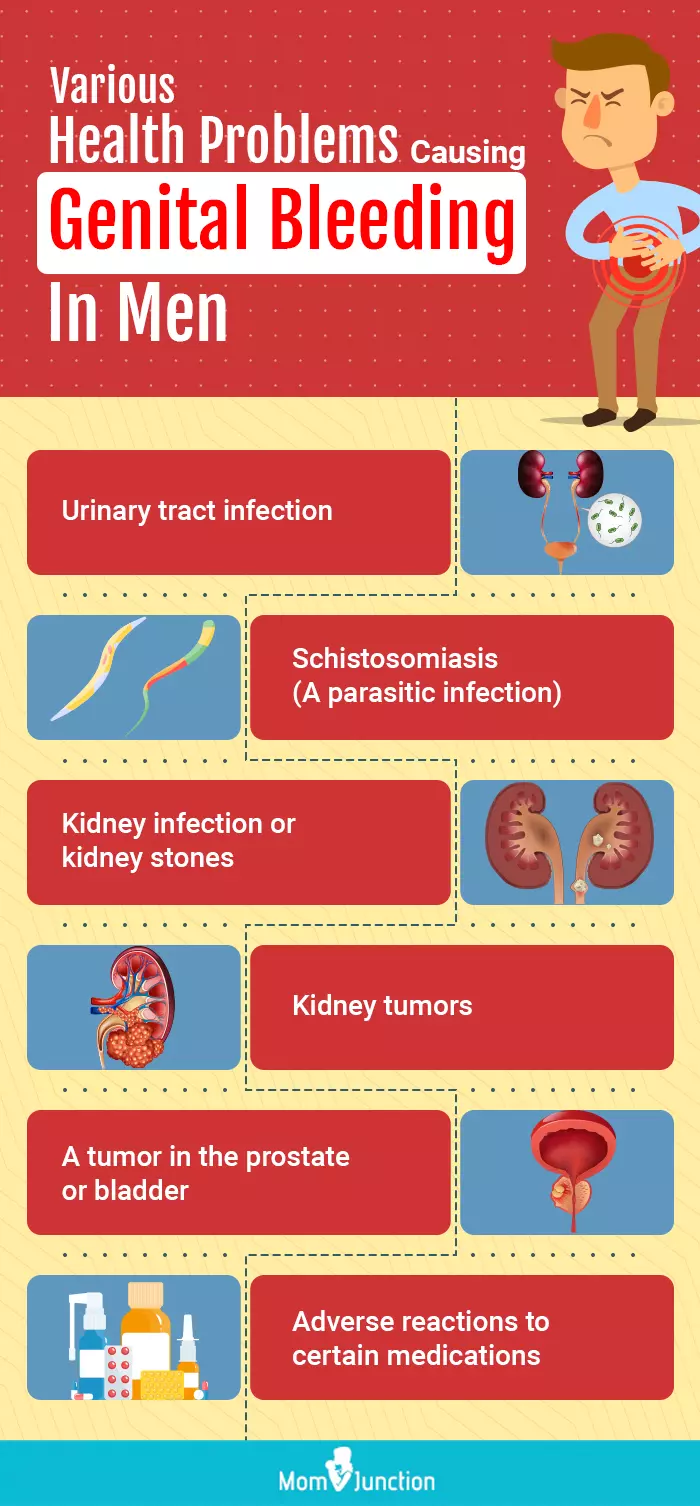
Illustration: MomJunction Design Team
Illustration: Do Boys Have Periods?

Image: Dall·E/MomJunction Design Team
References
1. If girls get periods, what do guys get?; Center for Young Women’s Health
2. The menstrual cycle; The University of California, Santa Barbara
3. For Girls: Answers to Questions About Periods; The University of California San Diego
4. Irritable male syndrome?; Columbia University, New York City
5. Schistosoma haematobium (blood flukes); Stanford University
6. Hematuria (Blood in the Urine); The National Institute of Diabetes and Digestive and Kidney Diseases
7. Blood in urine; American Kidney Fund
8. Men and urinary tract infections; Harvard University
9. Hematuria; MedExpert10. Jewish Male Menstruation In Seventeenth Century Spain; JSTOR
11. Puberty; Cleveland Clinic
12. Epididymo-orchitis; Health Navigator, New Zealand
Community Experiences
Join the conversation and become a part of our nurturing community! Share your stories, experiences, and insights to connect with fellow parents.
Read full bio of Dr. Dur Afshar Agha
Read full bio of Dr Bisny T. Joseph
Read full bio of Swati Patwal
Read full bio of Anindita Ghatak






